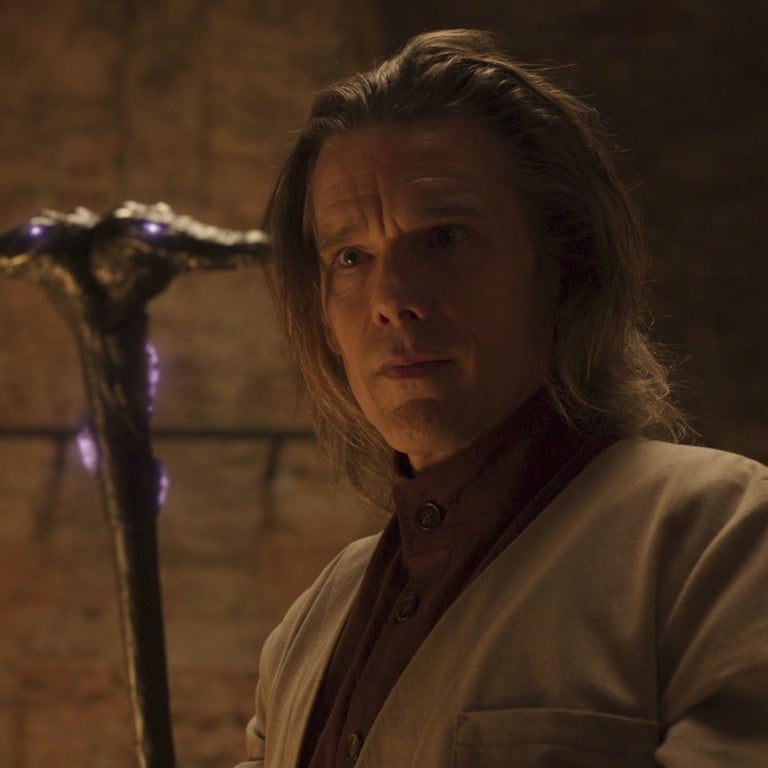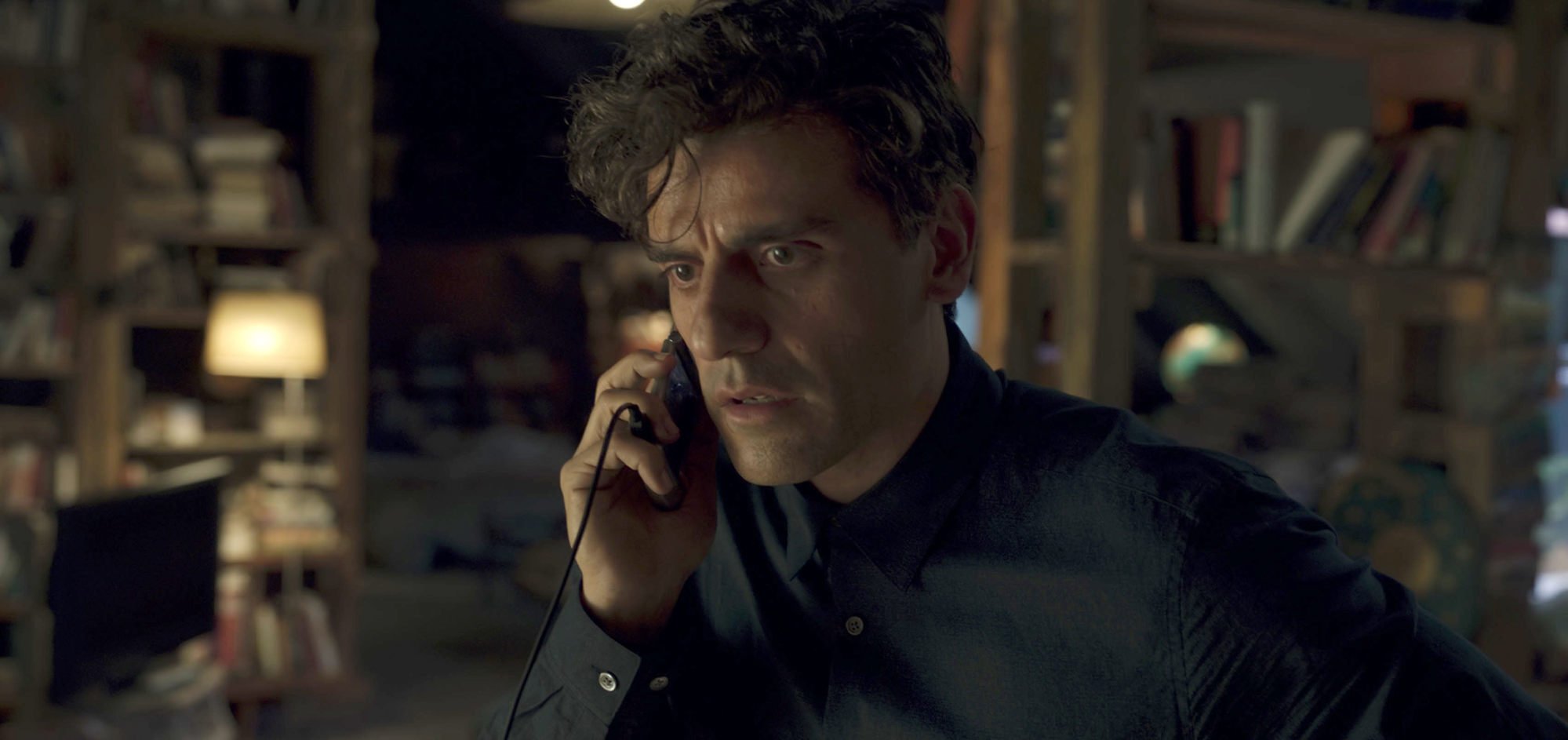
Marvel’s Moon Knight angers fans over bad Mandarin: the Chinese spoken is ‘gibberish’ and even Simu Liu is mad about it
- Viewers who speak Chinese are criticising a scene with Ethan Hawke as Arthur Harrow in Moon Knight for butchering the language, calling it ‘gibberish’ online
- Even MCU actors are weighing in – Simu Liu of Shang-Chi and the Legend of the Ten Rings tweeted that ‘Arthur Harrow needs to fire his Mandarin teacher’
Arthur Harrow wants his followers to speak three languages. He might want to find a new Mandarin teacher first.
The Moon Knight villain (played by Ethan Hawke) has a brief conversation, ostensibly in Chinese, with one of his followers in the second episode of the Marvel series, and viewers familiar with Mandarin are criticising the scene for butchering the language and calling it “gibberish” on social media.

The exchange is not subtitled, and the closed captioning only says they are “speaking in Mandarin”, so there is no translation provided for non-Mandarin speakers.
As clips of the scene circulated on Twitter, numerous viewers said they felt insulted or that the scene made them cringe. Some insisted there was no actual Mandarin spoken in the scene, while others concluded that the lines were poorly translated before they were delivered by the actors.
Why does the internet love Chinese-speaking foreigners? Ask yum cha kor
Among those responding to the scene are Marvel fans who believe the mangled Mandarin is intentional, either to undermine Harrow’s community or as part of a twist that Moon Knight has yet to reveal. That Steven’s English accent is intentionally “weird” could support these theories.
Marvel has not responded to a request for comment.
Chinese has a reputation for being a difficult language to learn for native English speakers, particularly because of its tones. But pronunciation aside, the lack of subtitles makes Moon Knight’s treatment of the Chinese language appear particularly careless – a prop language, of sorts, that the creative forces behind the series didn’t bother to get right.

Other non-English languages have also been spoken in Moon Knight. The first episode includes a scene where Harrow issues a command in what the closed caption describes as ancient Egyptian.
Earlier in episode two, Steven recites a poem in French and the closed captions also indicate only that he is speaking in French. Neither scene includes any subtitles for the non-English lines.
The only non-English language to get subtitles in Moon Knight so far is the Arabic in Episode 3, which premiered on April 13, presumably because these lines contain details that are important for the story.
This is not the first time that an MCU title has been called out for mutilating an Asian language.

Endgame and Black Panther preceded Shang-Chi, which was a milestone for Chinese and Chinese-American representation in the MCU and served as a rebuke of the long history of stereotypes and tropes perpetuated by both Marvel specifically (see: the Ancient One, the Mandarin, Iron Fist, etc) and Hollywood in general.
Why Marvel’s Chinese superhero Shang-Chi should only be the start
Whether the Mandarin passage can be “explained” by later revelations in narrative or not, though, the scene perpetuates stereotypes about Asians and Asian languages: Asian-Americans have historically been mocked and taunted with racist “Asian-sounding” gibberish.

